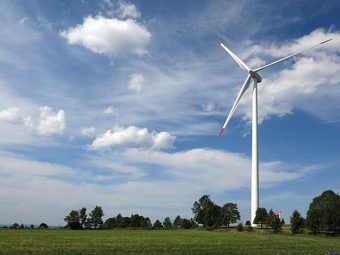
The UK may be on its way out of the EU, but for the next two years it remains an EU member and eligible for EU clean tech funding.
As such, an innovative energy storage project proposed for Northern Ireland is this week celebrating, having secured a €90m grant that will allow it to demonstrate the use of specially designed caves to store up to 330MW of renewable power.
Developer Gaelectric announced yesterday the Larne compressed air energy storage (CAES) project has been awarded the funding as part of the EU’s TEN-E regulation, which aims to support the development of innovative energy infrastructure.
The high profile project plans to use renewable power to compress and store air in specially designed caverns created within naturally occurring salt deposits deep underground. The air could then be released to drive generators, providing up to 330MW of power for periods of six to eight hours.
The latest funding follows previous EU grants totalling €15m, which supported the project’s early stage development.
“The Gaelectric team has worked tireless over the past number of years pursuing its vision of a renewable energy enabled economy and its firm belief that grid-scale energy storage is a key requirement to the attainment of this goal,” said Gaelectric Commercial Director Joe O’Carroll in a statement.
“While clearly delighted with this latest award from the EU, we view this as an important endorsement of the contribution that the Project will make towards improving the efficiency and sustainability of electricity transmission systems in Britain and Ireland.
“This Project is the first of a pipeline of projects employing CAES technology which Gaelectric is working on at several locations across Europe. We look forward to continuing our work with the authorities in Northern Ireland, with local communities and with the European Commission and the CEF Coordination Committee in bringing the Project to fruition.”
The funding is part of a €444m funding round announced by the European Commission in February, which has seen grants distributed to 18 energy infrastructure projects, including plans for new smart developments in the Balkans and proposals for a series of interconnector feasibility studies.
Separately, the Financial Times reported this week that UK grid operator National Grid is seeking a greater role in the emerging energy storage market, and is pressing government for a rule change that would allow it to own storage assets.
Currently National Grid is barred from operating such assets as they are technically classified as ‘generation’, but the company is said to be lobbying for reforms to the classification arguing it would allow it to more effectively manage emerging smart grids.
However, the move could face resistance from utilities who fear it could extend National Grid’s reach into the energy market in a way that some experts fear could stifle competition.
Source: businessgreen.com


